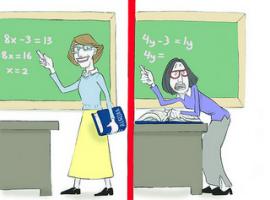CALIcon Session of the Day:I Was Told There Would Be No Math: Basic Data Analysis for Lawyers, Librarians, and other chronic Math-avoiders
It’s OK to admit it. When you went to law school, it was because you didn’t want to do any math. But then you got to work in legal education in the age of assessment and big data, and now you’re swimming in P-values, correlations, and standard deviations, with only the vaguest idea of what it all means. How will you make heads or tails of all this data if you actually want to use it to evaluate and improve your teaching and service? This program will introduce you to the basic terms and tools of data analysis, but without burying you in a mountain of equations. Instead, you’ll see the terms illustrated using images and stories that will help you better understand the concepts while leaving the calculations to those expensive software packages your institution already bought to do all that for you. You’ll also see how the math-averse can still use the powerful tools at their disposal to analyze everything from the difficulty of a single test question to the financial background of your entering class and talk about it in a manner that is both sensible and not confusing.









